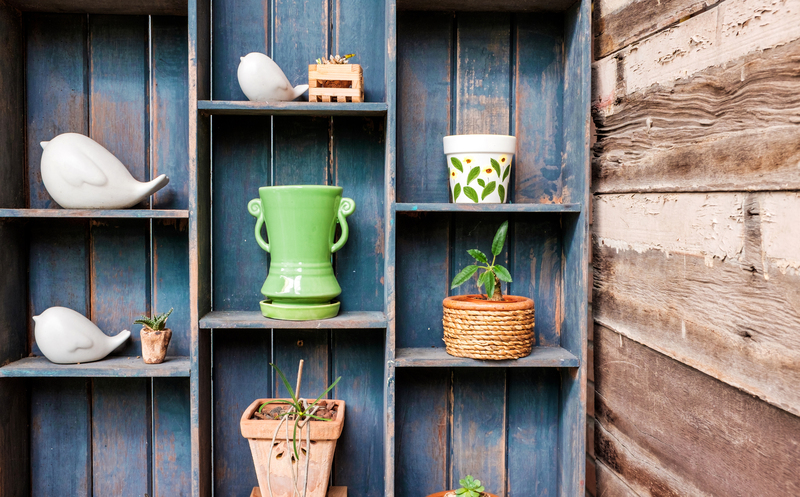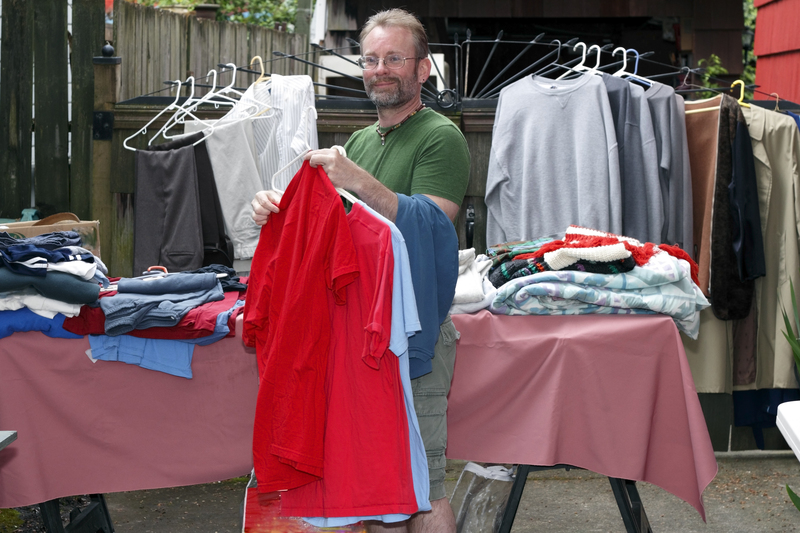The Do's and Don'ts of Disposing of Metal Cookware
Metal cookware plays an essential role in kitchens all over the world. Yet, there comes a time when even the sturdiest pans, pots, or baking trays reach the end of their lifespan. The question then arises: How should you dispose of metal cookware the right way? Improper disposal can harm the environment, waste valuable resources, and sometimes even break local regulations. In this comprehensive guide, we'll walk you through the do's and don'ts of disposing of metal cookware, offering eco-friendly solutions, important considerations, and expert insights to help you make the most responsible choice for your used metal cookware.
Why Proper Disposal of Metal Cookware Matters
Before we dive into the best practices, it's important to understand why responsible disposal is crucial:
- Environmental Impact: Metal takes a long time to decompose naturally. Dumping metal cookware in landfills contributes to pollution and wastes materials that could be recycled.
- Resource Conservation: Many metal pots and pans are made from aluminum, steel, copper, or cast iron--materials that can be efficiently recycled into new products.
- Legal Compliance: In many regions, discarding metal items with household trash is against the law and can lead to fines.
- Community Well-being: Properly disposing or donating usable cookware helps others and reduces communal waste streams.

The Do's of Disposing of Metal Cookware
1. Assess the Usability
- Check for Continued Use: If your metal cookware is still functional, consider passing it along to someone in need or donating it to a local charity, shelter, or thrift store. Not everything that you deem old is useless to someone else.
- Repair Before Disposal: Many small defects, such as loose handles or mild discoloration, can be fixed easily. Repairs extend the life of your cookware and postpone disposal.
2. Donate or Gift Usable Metal Cookware
- Local Thrift Stores & Non-Profits: Organizations like Goodwill, The Salvation Army, or local shelters often accept gently used cookware.
- Community Groups: Offer items through neighborhood exchanges, freecycle groups, or social media platforms like Facebook Marketplace or Buy Nothing groups.
- Schools and Community Organizations: Sometimes, teaching kitchens or community centers need extra cookware for classes and workshops.
3. Recycle Metal Cookware Responsibly
- Use Local Recycling Programs: Cookware made from metals such as aluminum, stainless steel, copper, or cast iron is typically recyclable. Research your local recycling facility to confirm which types of metal they accept and whether cookware with plastic or wooden handles must be disassembled.
- Remove Non-Metal Parts: Detach any rubber, plastic, or wooden parts if possible. Recycling centers prefer metal-only objects for processing.
- Scrap Metal Yards: Many scrap yards accept used metal cookware, and some even pay for scrap metal by weight. Call ahead to check for regulations and pricing.
- Hazardous Cookware: Some non-stick or coated pans (especially older Teflon) require special handling. Contact your local waste management service for guidance.
4. Reuse and Upcycle
- Creative Repurposing: Old pots, pans, or baking trays can become planters, storage containers, birdbaths, or art projects. Search for upcycling ideas before discarding them.
- Donation to Artists: Local art schools or workshops might accept unwanted metal cookware for sculpting, installations, or educational purposes.
5. Check for Manufacturer Take-Back Programs
- Cookware Brands: Some companies, such as Calphalon, offer take-back or recycling programs for their products. Visit their website or customer service for program details.
- Retail Stores: Large retailers occasionally offer trade-in incentives or recycling drives--especially during Earth Day or community events.
The Don'ts of Disposing of Metal Cookware
1. Don't Throw Metal Cookware in the Trash
- Avoid Landfills: Most standard trash collection services will not accept metal cookware, and placing it in your regular bin sends valuable resources to landfill, contributing to unnecessary waste.
- Legal Risks: In some municipalities, improper disposal of metal goods can incur fines.
2. Don't Assume All Metal is the Same
- Mixed Material Issues: Cookware with non-stick coatings, non-metal handles, or enamel finishes may require special processing. Mixing different types of metal and materials can complicate recycling and damage equipment.
- Know the Type: Identify whether your cookware is aluminum, cast iron, stainless steel, or copper, as recycling protocols differ.
3. Don't Dispose of Hazardous or Coated Cookware with Regular Recyclables
- Non-stick and Teflon: Older non-stick pans, especially those with damaged surfaces, should not be placed with regular recycling. Some facilities have specific drop-off days or hazardous waste events for these items.
- Lead or Toxic Components: Older cookware--particularly imported or antique--might contain lead, cadmium, or other hazardous substances. Query your local hazardous waste facility for safe processing.
4. Don't Forget to Clean Your Cookware Before Recycling
- Remove all food debris and thoroughly rinse cookware to prevent contamination at recycling centers. Dirty cookware can be rejected or cause issues during recycling.
5. Don't Overlook Local Laws and Regulations
- Municipal Requirements: Always check with your city or regional waste management department. Regulations can vary significantly on what types of metals and coatings are accepted.
How to Prepare Metal Cookware for Responsible Disposal
To ensure your old metal cookware is ready for recycling, donating, or upcycling, follow these steps:
- Remove all non-metal parts (handles, knobs, lids with glass) if possible.
- Scrub and clean thoroughly to remove oils and food residue.
- Sort by material type for recycling--keep aluminum, steel, cast iron, and copper separate if possible.
- Contact local facilities ahead of time to confirm they will accept your cookware and to learn about any drop-off guidelines.
- Verify with hazardous waste services if you're unsure about non-stick or heavily coated pans.
- For broken or unusable items, label the packaging clearly when dropping off at recycling or waste centers.
Where to Recycle or Donate Metal Cookware
Wondering where to take metal cookware for proper disposal or donation? Here's a helpful list:
- Municipal Recycling Centers: Most cities have facilities for dropping off scrap metal, including cookware (check their websites for details).
- Scrap Metal Yards: Look for commercial scrap dealers in your area who accept household cookware.
- Thrift Stores and Donation Bins: If your cookware is in usable condition, these outlets are often glad to accept donations.
- Specialty Recycling Drives: Local governments or non-profits sometimes organize metal item collection events throughout the year.
- Manufacturer Programs: Some brands or retailers offer return or recycling incentives (check their websites).
Creative Ideas for Repurposing Metal Cookware
If you're feeling crafty or just want to give your pots and pans a second life, consider these fun circular economy options:
- Turn an old pan into a flowerpot or herb garden container
- Use metal trays as serving platters, wall art, or magnet boards
- Re-purpose pots as bird baths, bird feeders, or garden ornaments
- Create storage bins for garage or garden tools
- Transform handles and lids into quirky kitchen hooks or wall hangers
Environmental Impact: Why Recycling Metal Cookware is So Important
Properly recycling metal cookware offers substantial environmental benefits:
- Conserves natural resources by reducing the need for mining new metal ores.
- Saves energy--producing metal from recycled material uses less energy than from raw ore.
- Reduces greenhouse gas emissions and pollution linked to the mining and refining process.
- Keeps hazardous materials (such as worn-out Teflon or enamel) out of landfills and the environment.

Frequently Asked Questions About Disposing of Metal Cookware
Can I put metal cookware in my curbside recycling?
Not usually. Most curbside bins are intended for smaller household recyclables, not metal pots and pans. Always check with your local provider first.
What about non-stick or Teflon pans?
Don't put non-stick coated pans in your standard recycling bin. Take them to a hazardous waste facility or inquire about specialty drop-off days in your community.
Can I scrap metal cookware for money?
Yes! Scrap yards buy metal by the pound. Prices fluctuate based on metal type. Stainless steel and copper are particularly valuable.
Will thrift stores accept all types of metal cookware?
Only if it's clean and still in usable condition. Avoid donating cookware with major cracks, peeling coatings, or severe rust.
Conclusion: Make Every Metal Pan Count
Disposing of metal cookware responsibly isn't just about decluttering your kitchen--it's about protecting the environment, supporting your community, and making mindful choices. By following the do's and don'ts of getting rid of old pots and pans, you help ensure valuable materials are reused, recycled, or repurposed for future generations. From recycling metal cookware at your local center, to upcycling into creative art projects, to donating to someone in need--there are countless eco-friendly options.
Let your next move with unwanted metal cookware reflect your commitment to sustainability, and inspire others in your community to do the same!
